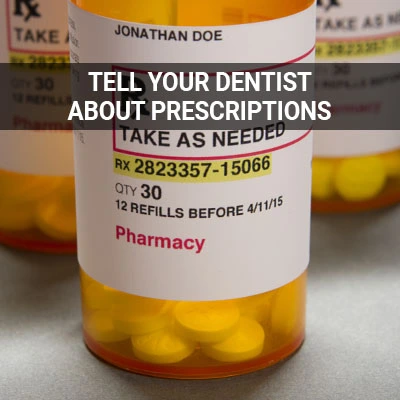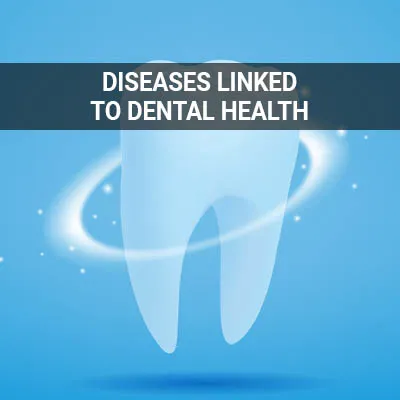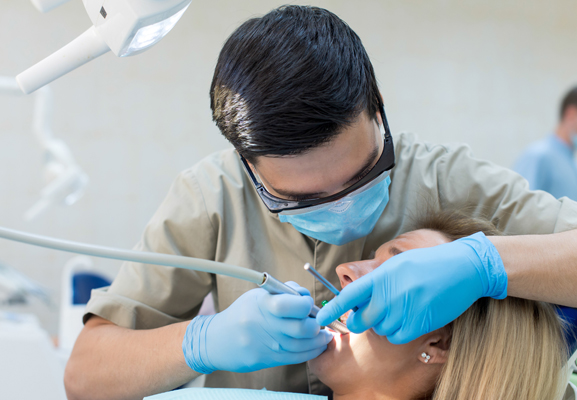Conditions Linked to Dental Health Charlotte, NC
Many patients do not realize that their oral health affects every region of their body. As a result, oral health problems can spread to other body parts and trigger widespread health concerns. At the same time, chronic health conditions may also increase a patient's risk for dental troubles. Understanding how oral and general health affect one another allows us to provide targeted care and improve patient outcomes.
Information about conditions linked to dental health is available at Randolph Dental Care in Charlotte and the surrounding area. Our team provides personalized care that addresses your dental concerns. In addition, we offer a range of treatment options, including preventive services. Call us at (704) 366-3622 to learn more.
Habitual Vs. Genetic
Habitual
Dental problems stemming from behavior, habit, and maintenance affect a person's oral health from birth to adulthood. Maintaining a proper oral hygiene routine is crucial from the moment the first teeth erupt. A healthy routine for adult teeth consists of brushing 2-3 times a day, flossing daily, rinsing before and after meals, and visiting the dentist for regular checkups and cleanings.
Genetic
A variety of oral health conditions are primarily genetic and may be out of a person's control. In most cases, health conditions are a combination of genes and the environment. Oral conditions found to be genetic to some extent include periodontal disease, cavities and caries, tooth decay and erosion, oral cancer, cleft lip or palate, and misaligned teeth. These conditions can escalate with improper or inadequate oral hygiene and impact other body systems.
How to Prevent These Issues
Oral care in early infanthood (wiping down or brushing the infant's gums several times a day) is the first step in the oral health journey and can significantly decrease a person's risk of other diseases through adulthood. More severe conditions such as gingivitis, periodontal disease, and oral cancer can be treated by a dental professional through surgeries and various treatments when found early on.
“In most cases, health conditions are a combination of genes and environment.”
Cavities and Sensitive Teeth
Cavities develop when decay penetrates the top layer of a tooth, known as the enamel. Without treatment, decay can spread and trigger a soft-tissue infection. Decay might even spread to the jawbone. In addition, patients with untreated cavities may develop a tooth abscess. This condition can progress into a life-threatening infection.
Patients with chronic health conditions may be at a higher risk of cavities. Our team can determine how often each patient needs exams and X-rays. Routine screenings can help detect cavities in their early stages. We can also provide advice about tooth pain and sensitivity.
“… patients with untreated cavities may develop a tooth abscess.”
Cracked and Broken Teeth
Cracked teeth can happen in a variety of ways: craze lines, cracked cusps, cracked teeth, and split teeth. Craze lines are common in adults and are not harmful as they are merely on the surface enamel but may lead to a cracked tooth. Cracked cusps can lead to a broken tooth, and cracked and split teeth need immediate attention as they can cause damage to other parts of the mouth, especially the gums.
Cracked or broken teeth can cause many oral and general health problems, as cracks give way to bacteria and infection. The Oral Health Foundation found that "If they are not treated, cracked teeth can lead to the death of the nerve, and an abscess might grow." An abscess is full of pus and bacteria, and when it opens, the bacteria travels through various tracts to the body.
“Cracked or broken teeth can cause many oral and general health problems, as cracks give way to bacteria and infection.”
Check out what others are saying about our dental services on Yelp: Conditions Linked to Dental Health in Charlotte, NC
Oral Cancers
Oral cavity and oropharyngeal cancer most commonly result from behavioral factors such as smoking, excessive drinking, and poor nutrition. People with a weak immune system are at the highest risk of developing oral cancers, as the body is unable to fight bacteria and infection as effectively. Human papillomavirus (HPV) infections can also cause oral cancers because of their effect on the mouth and throat.
Oral hygiene plays a vital role in reducing the risk of oral cancers along with preventing oral and general health concerns. The American Cancer Society found that "the overall health of the mouth, teeth, and gums may impact oral cavity and oropharyngeal cancer risk because of changes in the normal bacteria in the mouth." Poor oral hygiene may be linked to these cancers because of bacterial infections, tooth decay, and gum disease.
“Oral hygiene plays an important role in both reducing risk of oral cancers and preventing oral and general health concerns.”
Questions Answered on This Page
Q. Are oral conditions genetic or a result of environmental factors?
Q. How can a cracked or broken tooth affect other body systems?
Q. How do cavities affect my oral health?
People Also Ask
Q. How is diabetes affected by oral hygiene?
Q. What should patients do if they have sensitive teeth?
Q. What pre-existing conditions are affected by dental health?
Gum Disease Link to General Health
Gum disease is the leading cause of tooth decay, tooth loss, and, in severe cases, periodontal disease. The CDC found that "Certain chronic conditions increase one's risk for periodontal disease including diabetes, a weakened immune system, poor oral hygiene, and heredity." Gum and periodontal disease, characterized by sensitive and inflamed gums, are linked to decay and can result in tooth and bone loss when left untreated.
Diabetes is another common condition that both affects and is affected by gum disease. According to the Mayo Clinic, "By reducing the body's resistance to infection, diabetes puts your gums at risk. Gum disease appears to be more frequent and severe among people who have diabetes since people who have gum disease have a harder time controlling their blood sugar levels." Gum and periodontal care can help manage diabetes while maintaining stability in blood sugar can also help mitigate gum and periodontal disease.
Frequently Asked Questions About Conditions Linked to Dental Health
Q. What health conditions can affect your oral health?
A. Several chronic health conditions can cause gum disease. Chronic illness may also increase your risk for tooth decay. Patients may need additional care if they have:
Pregnant patients also need specialized care. For example, pregnancy can increase a person's risk of oral infections and cause gum inflammation.
Q. What are the health risks of poor oral hygiene?
A. Poor oral hygiene may increase your risk of:
Over time, untreated dental problems might cause:
Oral health problems can have a widespread, devastating impact on a person's health. We can help patients improve their oral health and protect against complications.
Q. How can I protect my oral health?
A. Preventive care can combat tooth decay and gum disease. Experts recommend that children and adults brush their teeth twice daily, floss once a day, and rinse the mouth often with plain water. Avoid sugary, sticky foods as they feed decay-causing bacteria and trap plaque against the gumline.
Q. What is the importance of routine dental exams and cleanings?
A. Dental exams help us properly assess a patient's current oral health status and determine the treatments they need. A twice-yearly dental cleaning removes plaque and tartar before decay can set in. Cleanings also offer the dentist an opportunity to check for developing problems. In addition, early cavity treatment may prevent future health issues.
Q. What should I do if I develop tooth pain or gum recession?
A. Report changes in your oral health to a dental provider right away. Tooth pain can be an early warning sign of serious dental problems. The sooner patients receive treatment for these issues, the better their outcomes. We can determine what treatment is right for you.
Dental Terminology
Learn More About Complete Health Dentistry Today
If you are looking for information or advice regarding complete health dentistry, call us at 704-366-3622.
Helpful Related Links
- American Dental Association (ADA). Glossary of Dental Clinical Terms. 2024
About our business and website security
- Randolph Dental Care was established in 2016.
- We accept the following payment methods: American Express, Cash, Check, Discover, MasterCard, and Visa
- We serve patients from the following counties: Mecklenburg County
- We serve patients from the following cities: Charlotte, Matthews, Huntersville, Fort Mill, and Pineville Mint Hill
- Norton Safe Web. View Details
- Trend Micro Site Safety Center. View Details
Back to top of Conditions Linked to Dental Health










